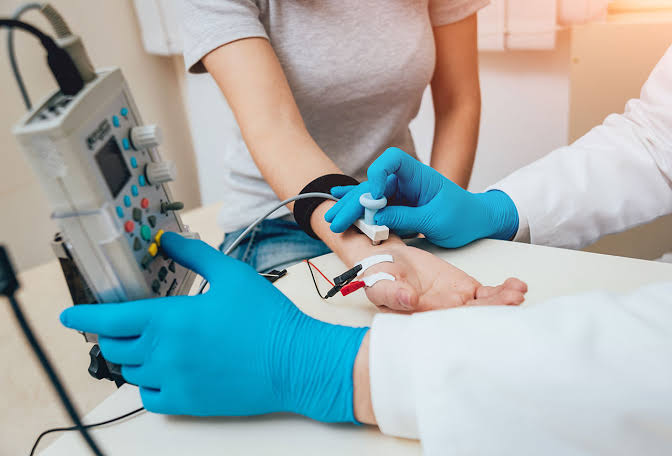Guillain-Barré Syndrome (GBS) is a rare but serious neurological condition that can have profound effects on an individual’s health. Understanding its early signs and symptoms, along with knowing how to manage and treat the condition, is crucial for improving outcomes and quality of life. This blog post will delve into what Guillain-Barré Syndrome is, how to detect it early, and the essential information you need to know.
What is Guillain-Barré Syndrome?
Guillain-Barré Syndrome is an autoimmune disorder where the body’s immune system mistakenly attacks the peripheral nervous system—the network of nerves outside the brain and spinal cord. This results in inflammation and damage to the nerves, which can lead to muscle weakness, numbness, and in severe cases, paralysis. The exact cause of GBS is not entirely known, but it often follows an infection, such as a respiratory or gastrointestinal illness.
Early Signs and Symptoms
Recognizing Guillain-Barré Syndrome early is crucial for effective treatment. The condition typically begins with mild symptoms that can progress rapidly. Here are some early warning signs to be aware of:
Weakness and Tingling:
One of the initial symptoms of Guillain-Barré Syndrome (GBS) is a tingling sensation or weakness in the legs. This often begins in one leg and can progressively spread to other areas of the body. The weakness typically advances over several days or weeks, which can make walking and performing daily activities increasingly challenging. For those experiencing such symptoms, seeking neuropathy treatment near you is crucial for early intervention and management.
Muscle Pain:
Many individuals with GBS experience muscle pain or cramping. This discomfort can be severe and may affect various parts of the body.
Loss of Reflexes:
Reduced or absent reflexes in the arms and legs are common. A healthcare provider can check reflexes during a physical examination.
Difficulty Breathing or Swallowing:
In more severe cases, GBS can affect the muscles involved in breathing and swallowing. This can lead to difficulty breathing, shortness of breath, and trouble swallowing or speaking.
Rapid Progression:
The symptoms of GBS often progress quickly. If you or someone you know experiences a sudden onset of weakness or other symptoms, it is crucial to seek medical attention promptly.
Diagnosis and Testing
Diagnosing Guillain-Barré Syndrome can be challenging due to its similarity to other neurological conditions. Early and accurate diagnosis involves a combination of clinical evaluation and diagnostic tests:
Medical History and Physical Examination:
A thorough medical history and physical examination help healthcare providers assess symptoms and rule out other conditions.
Nerve Conduction Studies:
These tests measure the electrical activity in nerves and can help identify abnormalities consistent with GBS.
Lumbar Puncture:
Also known as a spinal tap, this test involves taking a sample of cerebrospinal fluid (CSF) from the spinal canal. Elevated protein levels in the CSF, with normal cell counts, can indicate GBS.
Blood Tests:
While no specific blood test diagnoses GBS, blood tests can help rule out other conditions that might mimic its symptoms.
Treatment and Management
There is no cure for Guillain-Barré Syndrome, but early treatment can significantly improve outcomes. The primary goals are to manage symptoms, support recovery, and prevent complications:
Hospitalization:
Most individuals with GBS require hospitalization to monitor and manage their condition, especially if the disease progresses to affect breathing or other critical functions.
Intravenous Immunoglobulin (IVIG):
IVIG is a common treatment that involves administering antibodies through an intravenous line. It helps reduce the immune system’s attack on the nerves.
Plasma Exchange (Plasmapheresis):
This procedure involves removing and replacing the blood plasma, which can help remove harmful antibodies from the bloodstream.
Physical Therapy:
As recovery progresses, physical therapy is essential for regaining strength and mobility. A tailored rehabilitation program can help individuals recover their ability to perform daily activities.
Supportive Care:
Managing pain, providing emotional support, and addressing any complications, such as infections or blood clots, are important aspects of care.
Living with Guillain-Barré Syndrome
Living with Guillain-Barré Syndrome can be challenging, both physically and emotionally. Support from healthcare providers, family, and support groups is invaluable. Many individuals experience significant recovery, though the process can be lengthy and may require ongoing therapy.
Emotional Support:
Coping with the effects of GBS can be emotionally taxing. Support groups and counseling can provide encouragement and practical advice.
Lifestyle Adjustments:
Adapting to new physical limitations and learning how to manage daily activities can be an important part of recovery.
Ongoing Monitoring:
Regular follow-up appointments with healthcare providers ensure that any changes in symptoms are promptly addressed.
In Conclusion
Early detection and treatment of Guillain-Barré Syndrome are vital for improving outcomes and enhancing quality of life. By recognizing the early signs and seeking prompt medical attention, individuals can increase their chances of a successful recovery. Understanding the condition, its diagnosis, and treatment options empowers patients and their families to navigate this challenging journey with confidence.

